RNC Chair: Political Conventions Should Be Earlier Than Late August
The Chairman of the RNC wants the GOP to hold its quadrennial convention earlier in the year. He's right.
If Republican National Committee Chairman Reince Priebus hasw his way, the next Republican National Convention will far earlier than recent ones have been:
Republican National Committee Chair Reince Priebus said Saturday that moving the GOP convention to June from August would improve the chances of winning general elections.
“And yes, it’s going to shrink the duration of the primaries. It’s not an establishment takeover. We’re trying to do what’s right,” he told conservatives at the Faith and Freedom Coalition conference in Washington, with cheers and “amen” resounding in the crowd. “Listen, I’d rather win together than lose together.”
As I noted back in late August, as Hurricane Isaac bore down on the Gulf Coast mere days before the 2012 Republican National Convention, the practice of holding political conventions is a relatively recent development:
It wasn’t always this way. In 1980, the Republican Convention was in mid-July while the Democratic Convention was in mid-August. In 1984, the order was reversed, with the DNC in mid-July and the RNC in mid-August. The same schedule was adhered to for the 1988 conventions and the 1992 conventions. In 1996, the schedule changed slightly with the Republican convention in mid-August and the Democratic convention starting about two weeks later. In 2000, the Republicans held their convention the first week of August, and the Democrats went in mid-August. It was in 2004 when the pattern started to change, that year the Democrats held their convention the first week of August, but the GOP didn’t start their convention until August 30th. Then, of course, four years ago, both parties pushed their convention to the very end of August.
Twice now, scheduling conventions in late August has had an impact on scheduling, both times affecting the Republican convention. In 2008, it was Hurricane Gustav hitting the Louisiana/Mississippi/Alabama coast that led the RNC to cancel the first day’s activities and kept some speakers, such as Louisiana’s Bobby Jindal at home to deal with the storm aftermath. Last year, it was Isaac that cut a day off of the Republican Convention and, at least for a time, caused some to worry that the storm may take a direct line for the Tampa Bay area were the convention was being held. Fortunately, that didn’t happen. In both election cycles, storms could have easily had a similar impact on the Democratic Convention, especially last year when the convention was being held in Charlotte.
Scheduling earlier conventions would also seem to be advantageous to candidates,especially challengers. Under the law, Presidential candidates are required to segregate donations means for the General Election campaign from those meant from the primary campaign, and they are not permitted to spend General Election fund until they are officially nominated by their party. In 2012, this meant that the Romney campaign was unable to spend any of the hundreds of millions of dollars it had raised for the General Election until late August and thus unable to respond very much to the negative campaign ads that became a constant drumbeat throughout the summer of 2012. Had the GOP held its convention earlier in the summer, Romney would have been able to spend that money earlier. Now, that might not have been enough to win the election, indeed it probably wouldn’t have, but it would have at least been to the campaign’s advantage.
The idea of holding the conventions so close to Labor Day is somewhat understandable, I suppose. It’s a way for both parties to go into the traditional Labor Day start of the General Election campaign with something of a high-profile “bang.” However, it’s quite clear that we no longer live in a world where Presidential politics takes something of a break during the summer only to revive itself once Labor Day rolls around. Instead, the drumbeat of politics continues long after the primaries are completed and we already know who the party nominees are going to be. At this point, the only unknown is the identity of the person(s) who will be chosen as the Vice-Presidential running mate(s). Moreover, rather than being the forum at which nominees are chosen, the conventions now are little more than four day rallies for a candidate whose identity we’ve known for at least the past two months. Given that, it’s unclear why it makes sense to wait until late August to hold these conventions, especially since that period happens to coincide with the period when significant parts of the United States tend to be under threat from hurricanes and tropical storms. Reince Priebus may not have many good ideas, but his suggestion that political conventions be held earlier in the year is right on target.
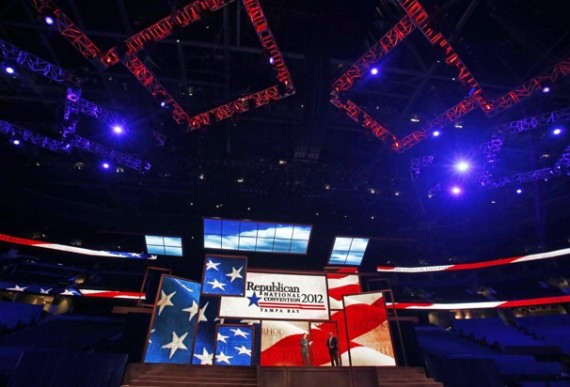

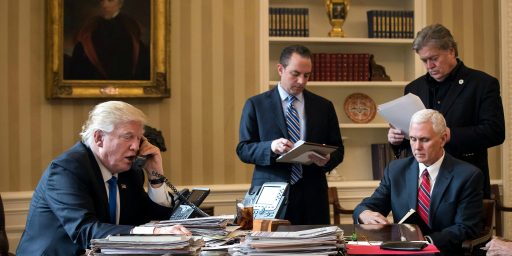
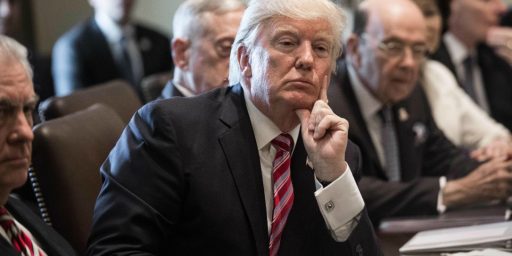
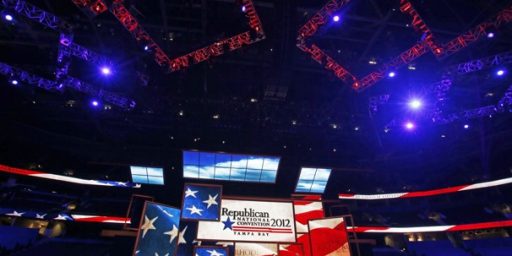
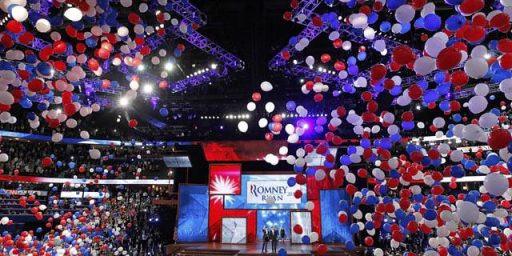
Absolutely! Get the crazy on earlier!!
It doesn’t matter when the convention is held. It’s so much rearranging of Titanic’s deck chairs to keep everyone too busy to worry about the hull having been fully breached by repulsive policies.
I think that the caucus states present much more of a problem for us than when we decide to hold our convention. They magnify the crazy and give non-viable candidates (Bachmann? Cain??) an artificially boosted perception of viability.
It’s gotten to the point that by the time that we get to the convention, any viable candidate (which we don’t seem to have a dearth of to begin with) has been forced to run so far to the right in order to survive the primary / caucus season that recovery with the moderates he or she has offended is next to impossible.
Our inability to swing moderates is what costs us elections. Yet we never learn.
I think we should shorten the Campaign Season by about 36 months – it begins the day after inauguration.
I’m sure that the conventions will eventually be held on the first Wednesday after the first Monday in November of every other even-numbered year.
Haven’t we been told that the occurrence of hurricanes is directly related to God’s punishment of sin.
Obviously, since hurricanes are thought to adversely affect the GOP presidential campaign, it is clear that God is unhappy with Republican sin.
Therefore, if they move the convention to June, then that just means that the Gulf Coast will have to prepare for hurricanes much earlier in the year.
Thanks a lot, Reince Priebus!!
Bla bla bla.
First and foremost any public financing of both the D and R conventions should be dumped.
The original intent, i.e. to provide a way for parties to present their views is clearly lost and the last thing we need is for the two, and only two, parties to get more time to BS us between the time they finally decide who are their candidates and the election.
Besides, a party that accepts the likes of Bachmann, Trump, Cain or Perry as suitable candidates in the primaries should at least show the decency to just STFU rather than whine. They are themselves the main responsible for their sad state, not the system.
The only thing more irrelevant in politics to the Republican convention is the Libertarisn Party and Green Party convention.
As the Democratic Party becomes even more dominant, the real question is whether Iowa and New Hampshire get to keep their places of prominence. Considering that if anyone wins both Democratic Party Iowa Caucuses and the Democratic Party New Hampshire primaries they will win the nomination, maybe it is time to give more than two states a say in who will be president.
However, since most Americans seem comfortable with the U.S. becoming a one party state, maybe it makes sense that most Americans will not care that they have no real say in who will be president.